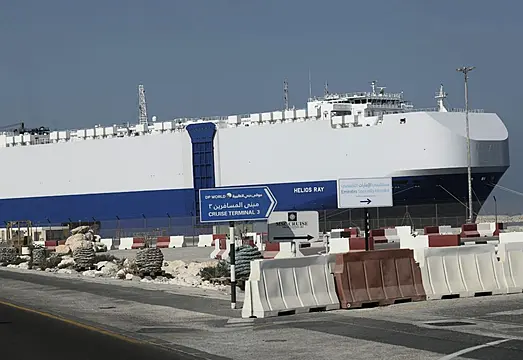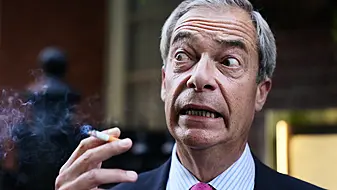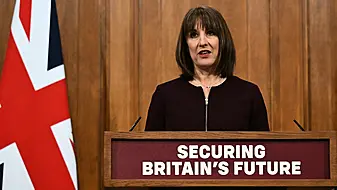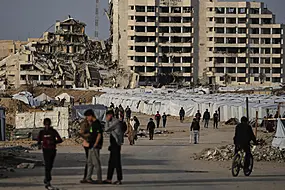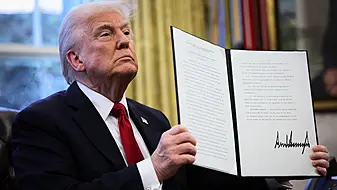Israeli Prime Minister Benjamin Netanyahu has accused Iran of attacking an Israeli-owned ship in the Gulf of Oman last week.
Mr Netanyahu spoke to Israeli public broadcaster Kan and said that “it was indeed an act by Iran, that’s clear”.
“Iran is the greatest enemy of Israel, I am determined to halt it. We are hitting it in the entire region,” Mr Netanyahu said.
The explosion struck the Israeli-owned MV Helios Ray, a Bahamian-flagged roll-on, roll-off vehicle cargo ship, as it was sailing out of the Middle East on its way to Singapore on Friday.

The crew was unharmed but the vessel sustained two holes on its port side and two on its starboard side just above the waterline, according to US defence officials.
The ship arrived in Dubai’s port for repairs on Sunday, days after the blast that revived security concerns in Mideast waterways amid heightened tensions with Iran.
It remains unclear what caused the blast. The Helios Ray had discharged cars at various ports in the Persian Gulf before the explosion forced it to reverse course.
Iran responded to Mr Netanyahu’s statement by saying it “strongly rejected” the claim that it was behind the attack.
In a press briefing, foreign ministry spokesman Saeed Khatibzadeh said the Israeli leader was “suffering from an obsession with Iran” and described his claims as “fear-mongering”.
Mr Netanyahu’s office declined to comment on reports that Israeli officials were in Dubai on Monday investigating the attack.

Overnight, Syrian state media reported a series of alleged Israeli airstrikes near Damascus, saying air defence systems had intercepted most of the missiles. Israeli media reports said the alleged airstrikes were on Iranian targets in response to the ship attack.
Israel has struck hundreds of Iranian targets in neighbouring Syria in recent years, and Mr Netanyahu has repeatedly said Israel will not accept a permanent Syrian military presence there.
Iran and its Lebanese proxy Hezbollah have provided military support to Syrian President Bashar Assad in the more than decade-long Syrian civil war.
Iran also has blamed Israel for a recent series of attacks, including a mysterious explosion last summer that destroyed an advanced centrifuge assembly plant at its Natanz nuclear facility, and the killing of Mohsen Fakhrizadeh, a top Iranian scientist who founded the Islamic Republic’s military nuclear program two decades ago. Iran has repeatedly vowed to avenge his killing.
“It is most important that Iran doesn’t have nuclear weapons, with or without an agreement, this I also told to my friend (Joe) Biden,” Mr Netanyahu said.
Iranian threats of retaliation have raised alarms in Israel since the signing of normalization deals with the United Arab Emirates and Bahrain in September.
